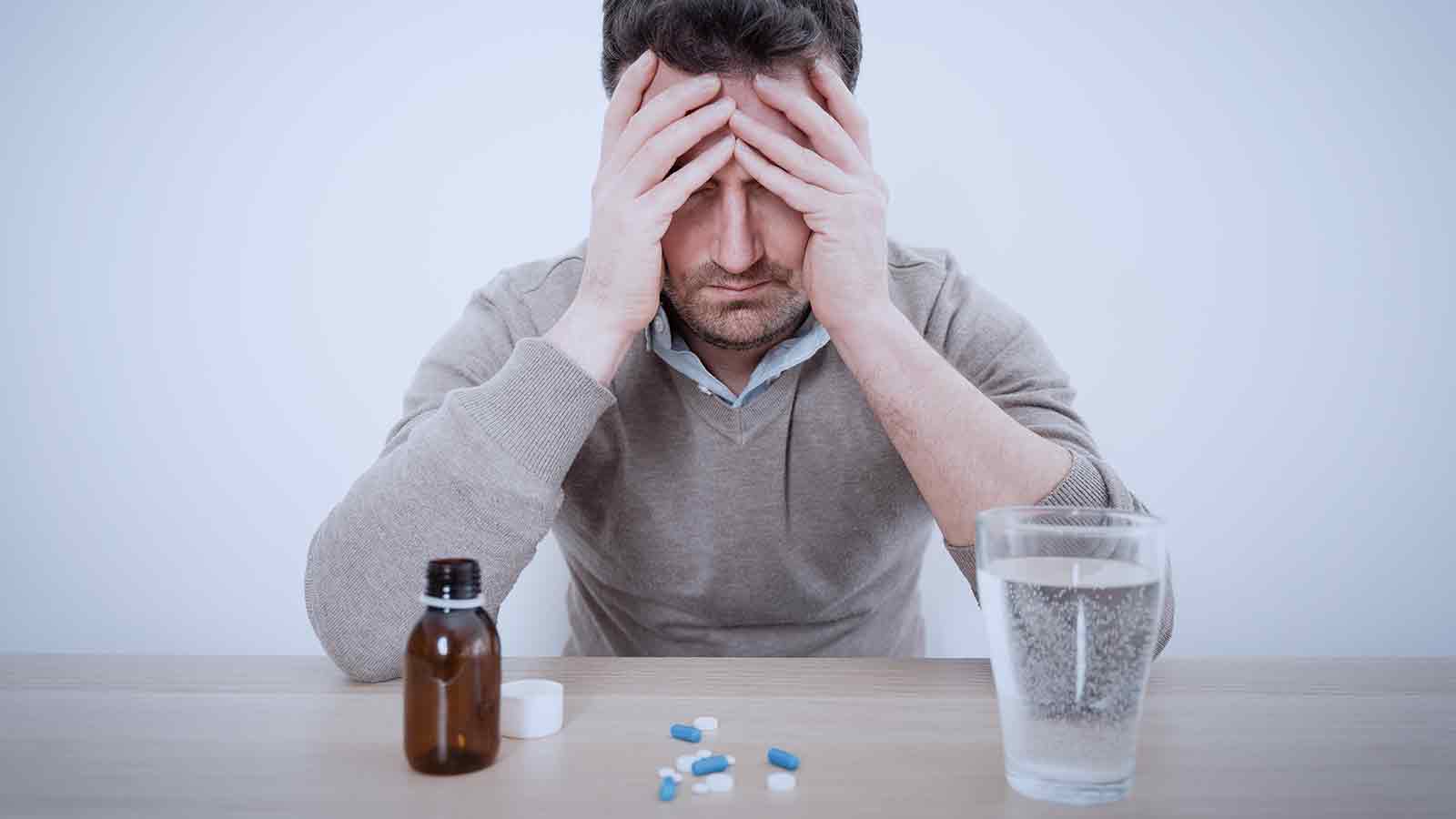With just over one-quarter of a billion people globally suffering from anxiety (in one form or another), this is a medication that is needed and appreciated in equal measure - Benzodiazepine use is absolutely essential to many people. However, as with so many modern medicines, there is a downside, with a huge abuse risk associated with the drug.
While statistics are difficult to measure, it is safe to surmise that there are an equal number of people worldwide who are experiencing drug abuse issues from the medication. To take that sentiment one step further, a huge number of people across the world (many millions, in fact) are suffering greatly from substance abuse to this highly addictive drug.
When taken as prescribed by health care professionals, the medication is (for the most part) relatively safe, but with thousands of people dying each year from Benzodiazepine overdose, there is a clear and obvious danger associated with this drug, which needs to be treated at a professional benzo rehab center to ensure the individuals health is not put further at risk.
What Are Benzodiazepines?
Benzodiazepines, commonly referred to as "Benzos," are a class of prescription drugs used to treat a wide range of mental disorders and physical ailments - although the latter is in the minority.
Benzodiazepines are mostly prescribed for moderate to severe anxiety, panic attacks, epileptic seizures, and even withdrawal symptoms from other Central Nervous System (CNS) Depressants such as alcohol abuse and other substance abuse withdrawal.
However, as with many medications, there is a high potential for Benzodiazepine abuse. As such, Benzodiazepines are usually prescribed for short-term use only in the hope of avoiding drug abuse problems such as Benzodiazepine addiction. Benzodiazepines have become more widely abused over the last couple of decades in particular.
Under the Controlled Substances Act, Benzodiazepines are categorized as Schedule IV controlled substance, which means most governments heavily regulate them and are strictly available as a prescription only. In turn, there is also a pretty huge black market for this medication, in which sections of society are engaged in Benzodiazepine substance abuse.
These drugs are primarily available in pill or tablet form for oral consumption, although some brands like Valium can also be administered intravenously by health care providers as a clear, odorless liquid. While legal when prescribed, Benzodiazepines are also available on the black market, where a thriving industry booms within various online and offline communities.
Prescription drug abuse is also rife among users who have become well versed in 'doctor shopping,' using various doctors to fuel their Benzo addiction (and other drugs).
Street names for these drugs include Tranks, Downers, Bars, Sticks, French Fries, Ladders, or, to use the most common term, which is simply 'Benzos.'
Benzodiazepines have a seriously high potential for abuse and dependence, which has, in turn, created something of an epidemic across America and many other Western countries. Therefore, to reduce the chances of addiction and abuse, it is imperative to take them only as prescribed by a qualified mental health professional or, indeed, any medical professional.
Additionally, abrupt cessation of Benzodiazepines - commonly known as 'cold turkey' - can result in severe, unpleasant, and sometimes quite dangerous Benzo withdrawal symptoms.
To that end, Benzodiazepine withdrawal should be carried out under the supervision of a healthcare professional if at all possible. At the very least, a taper program is advised over cold turkey.
Commonly Prescribed Benzodiazepines
Most Prescribed Benzodiazepines

Duration of Action
This classification is based on the drug's elimination half-life, which determines how long it takes for the drug to be eliminated from the body - this is a standard observation/classification applied to most medications. In total, the duration of action for Benzos can range from less than six hours to more than 24 hours, although, of course, various factors are applicable here, such as tolerance, age, weight, etc.
The classification of Benzodiazepines (based on their duration of action) is crucial in understanding the drug's effects, the potential for abuse, and the sometimes quite awful withdrawal symptoms. Short-acting Benzodiazepines (such as Xanax and Ativan) tend to have a higher potential for abuse and dependence due to their fast onset and short duration of action. By the same token, long-acting Benzodiazepines (such as Valium and Klonopin) tend to have a lower potential for abuse and dependence (at least, in comparison) due to their slower onset and longer duration of action for most people.
Regardless of the duration of action, all Benzodiazepines have the potential for addiction and abuse, and while there are two or three extremely commonly abused Benzos, every single one of them is being abused by someone, somewhere, at any given time.
Again, we can't stress enough that it is essential to take these drugs only as prescribed by a qualified mental health professional and seek professional help immediately if experiencing addiction or abuse symptoms - addiction is certainly not something to be treated lightly with this medication, which is rife for drug abuse.
Short-Acting Benzodiazepine
Short-Acting Benzodiazepine
Benzodiazepines Effects and Potential For Abuse
This feeling is often followed by a period known as 'the downers,' where the user is lethargic, sleepy, and generally quite listless and devoid of energy. Muscle spasms are a common symptom during this stage of lethargy.
It comes with very good reason that these drugs, just like other dangerous drugs, are strictly prescription only, and any use of Benzodiazepines outside of a doctor's recommendation alone would be classed as an abuse risk.
Some people who abuse Benzodiazepines often crush and snort their tablets or pills to increase their potency, leading to an increased risk of overdose because the drug has a more instant and potent effect on the system.
Seizures and coma are common and quite terrifying symptoms of a Benzodiazepine abuse (and actually way more common than you might think), which can slow down breathing and heart rate until they stop completely, resulting in death. Tragically or mercifully (depending on how you look at it, that is), this usually happens while a person is sleeping.
The effects of Benzodiazepine abuse are far-reaching and can significantly impact an individual's physical and mental health with prolonged use, leading to eventual memory impairment, sleep disturbances, and various 'odd' behavioral symptoms. It would be no exaggeration to suggest that abuse of this drug often completely changes a person's personality over time - there are family members all over the world who will attest to this dramatic change in loved ones.
Additionally, individuals who abuse Benzodiazepines are at a higher risk of developing mental health disorders such as depression and anxiety, leading to a 'vicious cycle' of increased abuse to cope with the increased decline in mental health.
There are various treatment options available for Benzodiazepine addiction, including medication-assisted treatment, behavioral therapies, and counseling. While it is difficult to comprehend when in the terrible throes of deep addiction, addicts should know that with the right support and guidance, it is possible to overcome addiction and lead a healthy and fulfilling life. More on that, later.
Side Effects
Benzodiazepine Addiction

Because of their popularity as a prescribed anti-anxiety medication, people from all walks of life and all age groups can be exposed to Benzodiazepines, and, therefore, a wide range of people can eventually suffer from Benzodiazepine addiction.
However, addiction can form even when taken under a physician's care and prescribed doses - something that is confusing to many people, who assume that under a doctor's supervision, addiction should never happen. It does, frequently.
One of the main issues with Benzodiazepine addiction is that users and their loved ones are often unaware of the high potential for addiction and abuse, owing to a 'knack' for hiding the abuse and covering up symptoms. Because of this, the usual warning signs of addiction are often easily overlooked.
This includes developing a tolerance to the drug's sedative effects (and therefore becoming adept at hiding the effects) or neglecting important people and activities to focus solely on obtaining and abusing the drugs. In many cases, the addiction will consume a person's life to the point that nothing else matters.
Symptoms of Addiction
The Diagnostic and Statistical Manual of Mental Disorders (DSM-5) lists Benzodiazepine abuse disorder as a substance use disorder. The symptoms of addiction to Benzodiazepines include uncontrollable cravings, drug-seeking behavior, and Benzodiazepine withdrawal symptoms when attempting to quit or reduce use. Seeking professional help from a rehab facility is essential in treating Benzodiazepine addiction, as these symptoms are incredibly difficult to address without help.
Again, It is important to remember that addiction is a treatable disease, and recovery is possible with the right support and guidance.
The main symptoms of addiction are very similar to that of substance abuse, with other drugs available as prescription only, especially when taken in high doses. Abuse patterns include (but are not limited to):
Benzodiazepine Abuse Withdrawal
When an addict stops using Benzodiazepines (or significantly reduces their familiar dose), withdrawal symptoms can emerge very quickly, which can turn deadly in extreme cases.
Benzodiazepine withdrawal is particularly dangerous due to the high risk of seizures, coma, and even death, while respiratory failure is also a possibility, especially when Benzodiazepines are often combined with alcohol, opioids, or other CNS depressants..
There are several risk factors that can increase the prospects of experiencing severe Benzodiazepine withdrawal symptoms. These risk factors include a personal or family history of a substance use disorder, psychological symptoms, and prolonged or high-dose drug use.
Fortunately, evidence-based treatment options are available to help individuals struggling with Benzodiazepine addiction achieve lasting recovery, and, as noted earlier in this post, it is vital that addicts understand there is hope through recovery. Medical detox is often the first step in treating Benzodiazepine addiction, as it helps manage withdrawal symptoms and reduce the risk of seizures, but in some cases, tapering doses of long-acting Benzodiazepines or phenobarbital may be administered during medical detox.
At Miracles Asia, our patients in the medical detox program receive 24/7 care from a team of health professionals who are equipped and experienced to respond to any potential emergencies that may exist.
The process is challenging but quite straightforward: After completing medical detox, most individuals require continued treatment to address the psychological and social factors that contribute to addiction, and that is something we offer on an outpatient basis, remotely.
Benzodiazepines addiction treatment may involve a combination of behavioral therapy, peer support, psychoeducation, medication (if needed), and treatment for any co-occurring disorders. It's essential to seek professional help immediately if experiencing withdrawal symptoms or any signs of addiction, as Benzodiazepine addiction can lead to a fatal overdose, so if you or a loved one are struggling with addiction, please do reach out and let us help.
There Is Hope

The fact of the matter is there is hope for individuals struggling with Benzodiazepine addiction. As a drug rehab center that specializes in rehab for drug and alcohol abuse, we at Miracles Asia have seen firsthand the devastating effects that addiction can have on individuals and their loved ones. However, we have also seen the transformative power of evidence-based treatment programs that focus on the physical, emotional, and spiritual aspects of recovery.
Benzodiazepine abuse is a significant problem, but it is treatable! Medical detox can alleviate withdrawal symptoms and reduce the risk of seizures, while continued treatment can address the psychological and social factors that contribute to addiction. In addition to traditional treatment programs, alternative therapies such as mindfulness meditation, yoga, and art therapy can also be effective in promoting long-term recovery.
Our facilities offer clients a safe and supportive environment where they can begin their journey toward recovery. Our experienced staff are dedicated to helping each client address their unique needs and challenges, which is why we offer a range of treatment options that are tailored to each individual's specific circumstances.
Anything Is Possible!
We believe that everyone deserves a second chance at a happy and healthy life, and we are committed to helping individuals achieve that goal.
If you or a loved one is struggling with Benzodiazepine addiction or any other form of drug use, know that there is hope! Seek professional help today and take the first step towards a brighter future with Miracles Asia.
Done suffer in silence. Take action, and embrace the help that you need and deserve.


